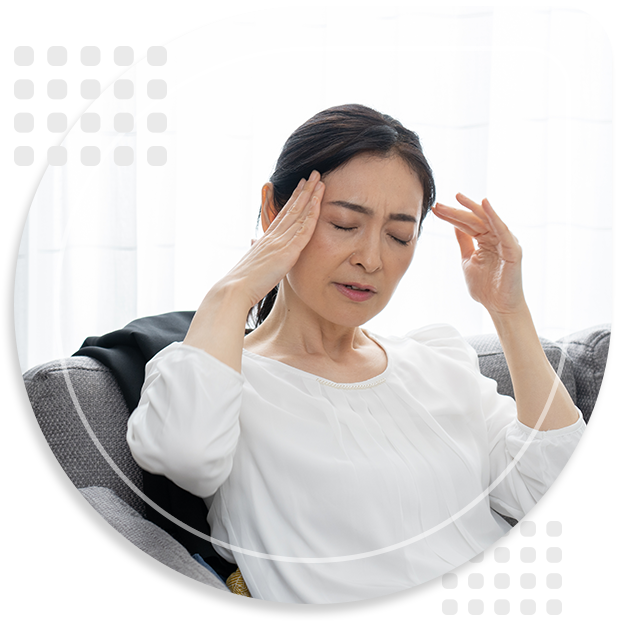Menopause
A Woman's Natural Evolution
Beginning at puberty, one or two eggs is released from the body every 21-35 days during ovulation. Menopause specifically occurs when the ovaries no longer release an egg every month and the cycle of menstruation stops, but the term is also routinely used to refer to any of the associated changes that a woman goes through either just before or after she stops menstruating, marking the end of her reproductive period.

The onset of menopause is actually a very gradual process,
which can be broken down into three stages:
- Perimenopause: Typically beginning several years before true menopause, perimenopause refers to the period of time when estrogen production in the ovaries gradually slows down. In the last one to two years before the body stops releasing eggs completely, the drop in estrogen accelerates and many women begin to experience menopause symptoms.
- Menopause: This is the point when it's been a year since a woman last had her last menstrual period. At this stage, the ovaries have stopped releasing eggs and estrogen production has declined significantly.
- Post-Menopause: In the years after menopause has fully manifested, post-menopause symptoms such as hot flashes often begin to ease for most women. However, health risks related to the loss of estrogen may continue to rise as the woman ages.
The Latter Stages Of Perimenopause
Throughout menopause women typically experience a variety of symptoms. Although every woman’s experience is different some of the more common signs associated with menopause include:
- Hot Flashes: The most well-known symptom of menopause, hot flashes are characterized by sudden feelings of warmth, that cannot be traced to an external source. Hot flashes may cause the skin to redden and lead to a temporary increase in heart rate and sweating. For some women, hot flashes are nothing but a minor inconvenience. For others, the frequency and intensity of their hot flashes can be very uncomfortable.
- Physical Changes: Irregular or skipped periods are a common sign of impending menopause, and the changes the body is undergoing frequently result in racing heart, headaches, vaginal dryness, bladder control problems, skin concerns, joint and muscle aches, or dyspareunia (pain with sexual activity).
- Emotional Changes: Many women undergoing menopause report experiencing rapid mood swings, feelings of depression or irritability, fatigue, insomnia, and even changes in their libido (sex drive).


Menopause Is A Normal Part Of Aging
Some women may undergo menopause early, either as a result of surgery, such as a hysterectomy, or damage to the ovaries, such as from chemotherapy. Menopause that happens before 40, regardless of the cause, is called premature menopause. Although menopause is unavoidable and there is no way to prevent it, our board-certified gynecologists can recommend a number of treatments that can help reduce the severity of your symptoms.

